HILT Conference 2024: Speaker Bios
“Open Minds in Dialogue”
Presented by the Office of the Vice Provost for Advances in Learning
Friday, September 20, 2024
Harvard Graduate School of Education, Harvard University
Welcome Remarks and Introduction
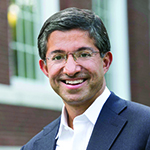 Bharat Anand is Vice Provost for Advances in Learning at Harvard University, and Henry R. Byers Professor of Business Administration at Harvard Business School. He is an expert in digital strategy, corporate strategy, and organizational change. He has published over 50 articles and case studies on these topics, and his work has influenced start-ups and established companies around the globe. His recent book The Content Trap has received acclaim for its perspective on strategy and digital transformation in content industries. He helped oversee the design and creation of Harvard Business School’s digital learning platforms, and created one of its first online courses. Professor Anand is a two time winner of the Faculty Award for Teaching Excellence in the MBA program and a recipient of the Apgar Award for Innovation in Teaching at HBS. He is a recipient of the Greenhill Award for outstanding contributions to Harvard Business School. He received his B.A. in economics from Harvard College magna cum laude, and his PhD in economics from Princeton University.
Bharat Anand is Vice Provost for Advances in Learning at Harvard University, and Henry R. Byers Professor of Business Administration at Harvard Business School. He is an expert in digital strategy, corporate strategy, and organizational change. He has published over 50 articles and case studies on these topics, and his work has influenced start-ups and established companies around the globe. His recent book The Content Trap has received acclaim for its perspective on strategy and digital transformation in content industries. He helped oversee the design and creation of Harvard Business School’s digital learning platforms, and created one of its first online courses. Professor Anand is a two time winner of the Faculty Award for Teaching Excellence in the MBA program and a recipient of the Apgar Award for Innovation in Teaching at HBS. He is a recipient of the Greenhill Award for outstanding contributions to Harvard Business School. He received his B.A. in economics from Harvard College magna cum laude, and his PhD in economics from Princeton University.
Video Address from President Alan Garber
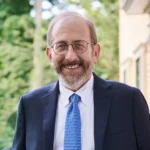 Alan Garber is the President of Harvard University. Garber was Harvard’s provost and chief academic officer from 2011-2024. He is also the Mallinckrodt Professor of Health Care Policy at Harvard Medical School, a Professor of Economics in the Harvard Faculty of Arts and Sciences, Professor of Public Policy in the Harvard Kennedy School of Government, and Professor in the Department of Health Policy and Management in the Harvard T.H. Chan School of Public Health. An economist and physician, he studies methods for improving health care productivity and health care financing. Dr. Garber is an Elected Member of the Association of American Physicians, the National Academy of Medicine, and the American Academy of Arts and Sciences. He is also an Elected Fellow of the American Association for the Advancement of Science, the American College of Physicians and the Royal College of Physicians. A summa cum laude graduate of Harvard College, Dr. Garber received a PhD in Economics from Harvard and an MD with research honors from Stanford.
Alan Garber is the President of Harvard University. Garber was Harvard’s provost and chief academic officer from 2011-2024. He is also the Mallinckrodt Professor of Health Care Policy at Harvard Medical School, a Professor of Economics in the Harvard Faculty of Arts and Sciences, Professor of Public Policy in the Harvard Kennedy School of Government, and Professor in the Department of Health Policy and Management in the Harvard T.H. Chan School of Public Health. An economist and physician, he studies methods for improving health care productivity and health care financing. Dr. Garber is an Elected Member of the Association of American Physicians, the National Academy of Medicine, and the American Academy of Arts and Sciences. He is also an Elected Fellow of the American Association for the Advancement of Science, the American College of Physicians and the Royal College of Physicians. A summa cum laude graduate of Harvard College, Dr. Garber received a PhD in Economics from Harvard and an MD with research honors from Stanford.
Morning Plenary #1: “How Did We Get Here?”
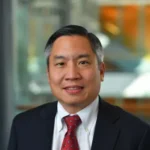 Bernard Chang is the Dean of Medical Education and a Professor of Neurology at Harvard Medical School (HMS). Dr. Chang has had extensive experience as both a curricular leader and an advisory dean. For 10 years he directed the integrated neuroanatomy, neurology, and psychopathology course at HMS now known as Mind Brain and Behavior. He was one of several faculty involved in the creation of Pathways, a transformative curricular approach that includes a case-based collaborative pedagogy, longitudinal clinical skills training, and advanced integrated courses in biomedical and health-related social sciences, and for seven years he served as chair of the Pathways preclerkship curricular governance committee.
Bernard Chang is the Dean of Medical Education and a Professor of Neurology at Harvard Medical School (HMS). Dr. Chang has had extensive experience as both a curricular leader and an advisory dean. For 10 years he directed the integrated neuroanatomy, neurology, and psychopathology course at HMS now known as Mind Brain and Behavior. He was one of several faculty involved in the creation of Pathways, a transformative curricular approach that includes a case-based collaborative pedagogy, longitudinal clinical skills training, and advanced integrated courses in biomedical and health-related social sciences, and for seven years he served as chair of the Pathways preclerkship curricular governance committee.
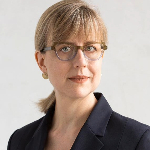 Amanda Claybaugh is the Dean of Undergraduate Education in the Department of English at Harvard. She is also the Samuel Zemurray Jr. and Doris Zemurray Stone Radcliffe Professor of English and Harvard College Professor. Amanda received her BA in English from Yale University in 1993 and her PhD in English from Harvard University in 2001. After teaching at Columbia University for nine years, she returned to Harvard in 2010. Amanda’s scholarship focuses on nineteenth-century literature and history, with a particular attention to the role that teachers and writers play in times of social change. Her first book,The Novel of Purpose: Literature and Social Reform in the Anglo-American World, was awarded the Rudikoff Prize in Victorian studies. Since then, Amanda continued to publish scholarly articles, but she also now writes in more public venues, such as the London Review of Books, Public Books, and n+1. She is currently finishing a work of narrative non-fiction, to be published by Farrar, Straus & Giroux, about the Union occupation of the South Carolina sea islands during the Civil War. Her teaching ranges widely, from Humanities 10 to the Gen Ed course she co-teached on the Civil War, but she finds herself returning, again and again, to the novel. Amanda teaches courses on the 19th century novel, on the 21st century novel, on the historical novel, and on the Bildungsroman.
Amanda Claybaugh is the Dean of Undergraduate Education in the Department of English at Harvard. She is also the Samuel Zemurray Jr. and Doris Zemurray Stone Radcliffe Professor of English and Harvard College Professor. Amanda received her BA in English from Yale University in 1993 and her PhD in English from Harvard University in 2001. After teaching at Columbia University for nine years, she returned to Harvard in 2010. Amanda’s scholarship focuses on nineteenth-century literature and history, with a particular attention to the role that teachers and writers play in times of social change. Her first book,The Novel of Purpose: Literature and Social Reform in the Anglo-American World, was awarded the Rudikoff Prize in Victorian studies. Since then, Amanda continued to publish scholarly articles, but she also now writes in more public venues, such as the London Review of Books, Public Books, and n+1. She is currently finishing a work of narrative non-fiction, to be published by Farrar, Straus & Giroux, about the Union occupation of the South Carolina sea islands during the Civil War. Her teaching ranges widely, from Humanities 10 to the Gen Ed course she co-teached on the Civil War, but she finds herself returning, again and again, to the novel. Amanda teaches courses on the 19th century novel, on the 21st century novel, on the historical novel, and on the Bildungsroman.
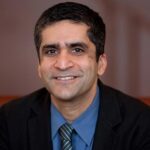 Rakesh Khurana is the Dean of Harvard College, Marvin Bower Professor of Leadership Development (HBS), and Professor of sociology and organizational behavior (FAS). Khurana is also the former Faculty Dean of Cabot House and became Danoff Dean of Harvard College on July 1, 2014. Khurana received his B.S. from Cornell University, and began graduate studies at Harvard in 1993, earning his Ph.D. in 1998 through a joint program between Harvard Business School (HBS) and the Graduate School of Arts and Sciences (GSAS).
Rakesh Khurana is the Dean of Harvard College, Marvin Bower Professor of Leadership Development (HBS), and Professor of sociology and organizational behavior (FAS). Khurana is also the former Faculty Dean of Cabot House and became Danoff Dean of Harvard College on July 1, 2014. Khurana received his B.S. from Cornell University, and began graduate studies at Harvard in 1993, earning his Ph.D. in 1998 through a joint program between Harvard Business School (HBS) and the Graduate School of Arts and Sciences (GSAS).

Jill Lepore is the David Woods Kemper ’41 Professor of American History at Harvard University and Professor of Law at Harvard Law School. She is also a staff writer at The New Yorker, and the host of the podcast, The Last Archive. A prize-winning professor, she teaches classes in evidence, historical methods, humanistic inquiry, and American history. Much of her scholarship explores absences and asymmetries in the historical record, with a particular emphasis on the history and technology of evidence. As a wide-ranging and prolific essayist, Lepore writes about American history, law, literature, and politics. She is the author of many award-winning books, including the international bestseller, These Truths: A History of the United States (2018). Her latest book is The Deadline, a collection of essays. Her next book, If Anything Human Can So Long Endure: A History of the U.S. Constitution, will be published in September 2025.
 Matthew Weinzierl is Senior Associate Dean and Chair of the MBA Program at Harvard Business School, where he is the Joseph and Jacqueline Elbling Professor of Business Administration in the Business, Government, and the International Economy Unit, and a Research Associate at the National Bureau of Economic Research. His research focuses on the optimal design of economic policy, in particular taxation, with an emphasis on better understanding the philosophical principles underlying policy choices. Recently, he has launched a set of research projects focused on the commercialization of the space sector and its economic implications.
Matthew Weinzierl is Senior Associate Dean and Chair of the MBA Program at Harvard Business School, where he is the Joseph and Jacqueline Elbling Professor of Business Administration in the Business, Government, and the International Economy Unit, and a Research Associate at the National Bureau of Economic Research. His research focuses on the optimal design of economic policy, in particular taxation, with an emphasis on better understanding the philosophical principles underlying policy choices. Recently, he has launched a set of research projects focused on the commercialization of the space sector and its economic implications.
Morning Plenary #2: “What Would You Do?”
 Bharat Anand is Vice Provost for Advances in Learning at Harvard University, and Henry R. Byers Professor of Business Administration at Harvard Business School. He is an expert in digital strategy, corporate strategy, and organizational change. He has published over 50 articles and case studies on these topics, and his work has influenced start-ups and established companies around the globe. His recent book The Content Trap has received acclaim for its perspective on strategy and digital transformation in content industries. He helped oversee the design and creation of Harvard Business School’s digital learning platforms, and created one of its first online courses. Professor Anand is a two time winner of the Faculty Award for Teaching Excellence in the MBA program and a recipient of the Apgar Award for Innovation in Teaching at HBS. He is a recipient of the Greenhill Award for outstanding contributions to Harvard Business School. He received his B.A. in economics from Harvard College magna cum laude, and his PhD in economics from Princeton University.
Bharat Anand is Vice Provost for Advances in Learning at Harvard University, and Henry R. Byers Professor of Business Administration at Harvard Business School. He is an expert in digital strategy, corporate strategy, and organizational change. He has published over 50 articles and case studies on these topics, and his work has influenced start-ups and established companies around the globe. His recent book The Content Trap has received acclaim for its perspective on strategy and digital transformation in content industries. He helped oversee the design and creation of Harvard Business School’s digital learning platforms, and created one of its first online courses. Professor Anand is a two time winner of the Faculty Award for Teaching Excellence in the MBA program and a recipient of the Apgar Award for Innovation in Teaching at HBS. He is a recipient of the Greenhill Award for outstanding contributions to Harvard Business School. He received his B.A. in economics from Harvard College magna cum laude, and his PhD in economics from Princeton University.
 Jeannie Suk Gersen is the John H. Watson, Jr. Professor of Law at Harvard Law School, where she has taught constitutional law, criminal law and procedure, family law, and the law of art, fashion, and the performing arts. Before joining the faculty in 2006, she served as a law clerk to Justice David Souter on the United States Supreme Court, and to Judge Harry Edwards on the U.S. Court of Appeals for the D.C. Circuit. She was educated at Yale (B.A. 1995), at Oxford (D.Phil 1999) where she was a Marshall Scholar, and at Harvard Law School (J.D. 2002), where she was a Paul & Daisy Soros Fellow. She has written three books and many articles in scholarly journals and general media. Her book, At Home in the Law, was awarded the Law and Society Association’s Herbert Jacob Prize for the best law and society book of the year. She has been a Guggenheim Fellow and a recipient of Harvard Law School’s Sacks-Freund Award for Teaching Excellence. She is a Contributing Writer to The New Yorker.
Jeannie Suk Gersen is the John H. Watson, Jr. Professor of Law at Harvard Law School, where she has taught constitutional law, criminal law and procedure, family law, and the law of art, fashion, and the performing arts. Before joining the faculty in 2006, she served as a law clerk to Justice David Souter on the United States Supreme Court, and to Judge Harry Edwards on the U.S. Court of Appeals for the D.C. Circuit. She was educated at Yale (B.A. 1995), at Oxford (D.Phil 1999) where she was a Marshall Scholar, and at Harvard Law School (J.D. 2002), where she was a Paul & Daisy Soros Fellow. She has written three books and many articles in scholarly journals and general media. Her book, At Home in the Law, was awarded the Law and Society Association’s Herbert Jacob Prize for the best law and society book of the year. She has been a Guggenheim Fellow and a recipient of Harvard Law School’s Sacks-Freund Award for Teaching Excellence. She is a Contributing Writer to The New Yorker.
 Meira Levinson is the Juliana W. and William Foss Thompson Professor of Education and Society at Harvard Graduate School of Education and Director of the Design Studio for Civics and Ethics Pedagogy at Harvard’s Edmond & Lily Safra Center for Ethics. She is currently working to start a global field of educational ethics, modeled in some ways after bioethics, that is philosophically rigorous, disciplinarily and experientially inclusive, and both relevant to and informed by educational policy and practice. In doing so, she draws upon scholarship from multiple disciplines as well as her eight years of experience teaching middle school in the Atlanta and Boston Public Schools. Levinson has published over 50 articles and book chapters as well as nine books, including Instructional Moves for Powerful Teaching in Higher Education (2023, co-authored with Jeremy Murphy) and two case books coming out this November: Civic Contestation in Global Education and Educational Equity in a Global Context (both co-edited with Ellis Reid, Tatiana Geron, and Sara O’Brien). Levinson earned a B.A. in philosophy from Yale and a D.Phil. in politics from Nuffield College, Oxford University. Her work has been supported by fellowships from Guggenheim, the Edmond & Lily Safra Center for Ethics, Harvard Radcliffe Institute, and the National Academy of Education.
Meira Levinson is the Juliana W. and William Foss Thompson Professor of Education and Society at Harvard Graduate School of Education and Director of the Design Studio for Civics and Ethics Pedagogy at Harvard’s Edmond & Lily Safra Center for Ethics. She is currently working to start a global field of educational ethics, modeled in some ways after bioethics, that is philosophically rigorous, disciplinarily and experientially inclusive, and both relevant to and informed by educational policy and practice. In doing so, she draws upon scholarship from multiple disciplines as well as her eight years of experience teaching middle school in the Atlanta and Boston Public Schools. Levinson has published over 50 articles and book chapters as well as nine books, including Instructional Moves for Powerful Teaching in Higher Education (2023, co-authored with Jeremy Murphy) and two case books coming out this November: Civic Contestation in Global Education and Educational Equity in a Global Context (both co-edited with Ellis Reid, Tatiana Geron, and Sara O’Brien). Levinson earned a B.A. in philosophy from Yale and a D.Phil. in politics from Nuffield College, Oxford University. Her work has been supported by fellowships from Guggenheim, the Edmond & Lily Safra Center for Ethics, Harvard Radcliffe Institute, and the National Academy of Education.
Concurrent Breakout Sessions
“Creating Effective Social Contracts”
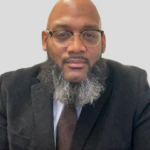 Harry Harding is an instructor at the Harvard Division of Continuing Education (DCE) and the Vice President of Innovation and Strategic Partnerships at Children Services of Roxbury (CSR), a social services non-profit in Boston that serves more than 6,000 families across Massachusetts annually. As Vice President of CSR His role is to cultivate external relationships and alliances while working closely with the CSR executive team to generate/execute ideas and implement initiatives related to agency and programmatic development. Prior to his current position, Harry dedicated three years to overseeing training for the Behavioral Health Department at CSR.
Harry Harding is an instructor at the Harvard Division of Continuing Education (DCE) and the Vice President of Innovation and Strategic Partnerships at Children Services of Roxbury (CSR), a social services non-profit in Boston that serves more than 6,000 families across Massachusetts annually. As Vice President of CSR His role is to cultivate external relationships and alliances while working closely with the CSR executive team to generate/execute ideas and implement initiatives related to agency and programmatic development. Prior to his current position, Harry dedicated three years to overseeing training for the Behavioral Health Department at CSR.
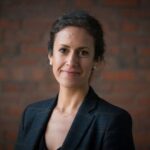 Zoe Marks is a Lecturer in Public Policy at the Harvard Kennedy School. Her research and teaching focuses on the intersections of conflict and peacebuilding; gender and intersectional inequality; and African politics. In addition to her work on civil war and revolutionary movements, Dr. Marks studies peacebuilding and community reintegration after war. Using surveys and social network analysis in Northeast Nigeria and the Democratic Republic of the Congo, her research compares protracted conflict settings to explain how exposure to violence and conflict experiences affects intergroup reconciliation and peacebuilding. Professor Marks is committed to creating space for conversations about ethical research praxis and making academia more inclusive. She has convened workshops related to decolonizing the academy and edited a special double issue of the journal Critical African Studies with colleagues at the University of Cape Town.
Zoe Marks is a Lecturer in Public Policy at the Harvard Kennedy School. Her research and teaching focuses on the intersections of conflict and peacebuilding; gender and intersectional inequality; and African politics. In addition to her work on civil war and revolutionary movements, Dr. Marks studies peacebuilding and community reintegration after war. Using surveys and social network analysis in Northeast Nigeria and the Democratic Republic of the Congo, her research compares protracted conflict settings to explain how exposure to violence and conflict experiences affects intergroup reconciliation and peacebuilding. Professor Marks is committed to creating space for conversations about ethical research praxis and making academia more inclusive. She has convened workshops related to decolonizing the academy and edited a special double issue of the journal Critical African Studies with colleagues at the University of Cape Town.
 Adrienne Phelps-Cocois an Executive Director of Teaching and Learning at the Harvard Division of Continuing Education (DCE), where she oversees the pedagogical support and media production for nearly 1,000 online, hybrid and HyFlex courses per year. Adrienne leads the teaching and learning team to develop and support various approaches to online, blended and in-person learning that fosters human connection, provides flexibility for adult part-time learners, and allows faculty to meet their own pedagogical goals for their courses. She holds a PhD in American History from the University of Illinois at Chicago and teaches in the learning design certificate at Harvard Extension School.
Adrienne Phelps-Cocois an Executive Director of Teaching and Learning at the Harvard Division of Continuing Education (DCE), where she oversees the pedagogical support and media production for nearly 1,000 online, hybrid and HyFlex courses per year. Adrienne leads the teaching and learning team to develop and support various approaches to online, blended and in-person learning that fosters human connection, provides flexibility for adult part-time learners, and allows faculty to meet their own pedagogical goals for their courses. She holds a PhD in American History from the University of Illinois at Chicago and teaches in the learning design certificate at Harvard Extension School.
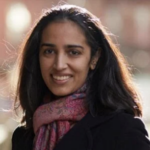 Sejal Vashi is the Director of Learning Design and Instructional Support where, alongside her team members, she serves as a trusted advisor in advocating for and developing pedagogically and technologically sound teaching and learning strategies and products. She is also an Instructor in the DrPH Program. Sejal’s interests are in the intersection of education and public health. Prior to joining Harvard Chan, Sejal was at the Infectious Diseases Institute in Kampala, Uganda, where she was an eLearning Specialist and a Global Health Corps fellow, designing and delivering training on HIV and TB, among other topics.
Sejal Vashi is the Director of Learning Design and Instructional Support where, alongside her team members, she serves as a trusted advisor in advocating for and developing pedagogically and technologically sound teaching and learning strategies and products. She is also an Instructor in the DrPH Program. Sejal’s interests are in the intersection of education and public health. Prior to joining Harvard Chan, Sejal was at the Infectious Diseases Institute in Kampala, Uganda, where she was an eLearning Specialist and a Global Health Corps fellow, designing and delivering training on HIV and TB, among other topics.
“Leveraging Technologies to Give Everyone a Voice”
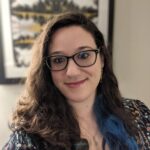 Esther Brandon is a Manager of Learning Design and Technology Adoption at Harvard Medical School (HMS). Esther partners with faculty and staff to utilize the latest academic technologies for excellence in medical pedagogy. She is a member of the Association of American Medical Colleges (AAMC) Group on Information Resources and has presented on artificial intelligence, accessibility, policy creation, and learning design topics for medical education.
Esther Brandon is a Manager of Learning Design and Technology Adoption at Harvard Medical School (HMS). Esther partners with faculty and staff to utilize the latest academic technologies for excellence in medical pedagogy. She is a member of the Association of American Medical Colleges (AAMC) Group on Information Resources and has presented on artificial intelligence, accessibility, policy creation, and learning design topics for medical education.
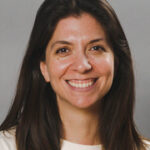 Christine D’Auria is the Assistant Director of the Learning Lab at The Derek Bok Center For Teaching and Learning. Christine collaborates with students, faculty, and the Learning Lab team to develop multimodal projects that have applications in a range of courses and departments across the Colleges and Harvard Griffin Graduate School of Arts and Sciences. She works closely with the Learning Lab’s Media & Design Fellows (MDFs), supporting and documenting MDF projects. These MDF projects creatively integrate a broad range of media, tools, and forms to augment Harvard curricula and faculty research. Christine received her MA in Literary and Cultural Studies from Carnegie Mellon University and holds a PhD in American Studies from Boston University. When not at the Learning Lab, Christine can be found watching movies.
Christine D’Auria is the Assistant Director of the Learning Lab at The Derek Bok Center For Teaching and Learning. Christine collaborates with students, faculty, and the Learning Lab team to develop multimodal projects that have applications in a range of courses and departments across the Colleges and Harvard Griffin Graduate School of Arts and Sciences. She works closely with the Learning Lab’s Media & Design Fellows (MDFs), supporting and documenting MDF projects. These MDF projects creatively integrate a broad range of media, tools, and forms to augment Harvard curricula and faculty research. Christine received her MA in Literary and Cultural Studies from Carnegie Mellon University and holds a PhD in American Studies from Boston University. When not at the Learning Lab, Christine can be found watching movies.
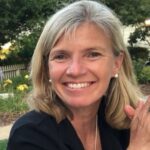 Kelly Miller is a Senior Lecturer in Applied Physics in the School of Engineering and Applied Science at Harvard University. She completed her Ph.D. in Applied Physics from Harvard in 2015. Prior to that, she received a Master’s in Physics from the University of Vermont and completed her undergraduate education at McGill University. Before graduate school, Kelly taught middle and high school science at various schools in Toronto, Rosseau, Montreal, and Vermont. She spent a year sailing around the world while teaching physics for Class Afloat, an experiential education program for high school students onboard a tall ship. While teaching high school physics, Kelly developed a passion for teaching and scholarship in education. Her Ph.D. focussed on the use of technology and interactive teaching strategies in undergraduate physics classrooms. At Harvard, Kelly teaches interactive, project-based courses in both physics and engineering. She is also a co-founder of Perusall, a collaborative reading platform to help get students prepared for class.
Kelly Miller is a Senior Lecturer in Applied Physics in the School of Engineering and Applied Science at Harvard University. She completed her Ph.D. in Applied Physics from Harvard in 2015. Prior to that, she received a Master’s in Physics from the University of Vermont and completed her undergraduate education at McGill University. Before graduate school, Kelly taught middle and high school science at various schools in Toronto, Rosseau, Montreal, and Vermont. She spent a year sailing around the world while teaching physics for Class Afloat, an experiential education program for high school students onboard a tall ship. While teaching high school physics, Kelly developed a passion for teaching and scholarship in education. Her Ph.D. focussed on the use of technology and interactive teaching strategies in undergraduate physics classrooms. At Harvard, Kelly teaches interactive, project-based courses in both physics and engineering. She is also a co-founder of Perusall, a collaborative reading platform to help get students prepared for class.
 Charles Nesson is the Weld Professor of Law at Harvard Law School (HLS). Professor Nesson charted the early field of cyber law in 1997 when he founded the Berkman Center for Internet & Society at Harvard Law School, which has since evolved to become the Berkman Klein Center for Internet & Society at Harvard University. His current cyber interest focuses on the utility of a closed shared de-identified text-only discourse environment to enhance open discourse with and among his students. Professor Nesson teaches about the American Jury, once the ultimate voice of the People in American criminal justice, now reduced to relative inconsequence as a subsidiary judicial fact-finder.
Charles Nesson is the Weld Professor of Law at Harvard Law School (HLS). Professor Nesson charted the early field of cyber law in 1997 when he founded the Berkman Center for Internet & Society at Harvard Law School, which has since evolved to become the Berkman Klein Center for Internet & Society at Harvard University. His current cyber interest focuses on the utility of a closed shared de-identified text-only discourse environment to enhance open discourse with and among his students. Professor Nesson teaches about the American Jury, once the ultimate voice of the People in American criminal justice, now reduced to relative inconsequence as a subsidiary judicial fact-finder.
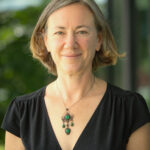 Rebecca Nesson is the Dean for Academic Programs and Associate Senior Lecturer on Computer Science at the John A. Paulson School of Engineering and Applied Sciences (SEAS).
Rebecca Nesson is the Dean for Academic Programs and Associate Senior Lecturer on Computer Science at the John A. Paulson School of Engineering and Applied Sciences (SEAS).
 Teddy Svoronos is a Senior Lecturer of Public Policy at the Harvard Kennedy School, where he teaches courses in using statistical methods to improve public policy. His primary interest lies in the use of technology to replicate the dynamics of small classes on a large scale. Teddy is a Faculty Lead for the Evidence for Decisions area of HKS’ online Public Leadership Credential and the Faculty Liaison for Pedagogy and Digital Learning at SLATE. He is also a cofounder of Teachly, a web application focused on creating effective and inclusive learning environments, and PingPong, a platform enabling the creation of custom AI bots for teaching. Teddy received his PhD in Health Policy from Harvard University and his Master’s in Public Health from Columbia University.
Teddy Svoronos is a Senior Lecturer of Public Policy at the Harvard Kennedy School, where he teaches courses in using statistical methods to improve public policy. His primary interest lies in the use of technology to replicate the dynamics of small classes on a large scale. Teddy is a Faculty Lead for the Evidence for Decisions area of HKS’ online Public Leadership Credential and the Faculty Liaison for Pedagogy and Digital Learning at SLATE. He is also a cofounder of Teachly, a web application focused on creating effective and inclusive learning environments, and PingPong, a platform enabling the creation of custom AI bots for teaching. Teddy received his PhD in Health Policy from Harvard University and his Master’s in Public Health from Columbia University.
“Open Dialogue Within and Across Disciplines”
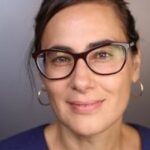 Salma Abu Ayyash is a Preceptor at SEAS LInc. She is an Electrical Engineer who earned her BSc and MSc in Electrical Engineering from Syracuse University. She taught math, electrical engineering and computer networking courses as an adjunct faculty member for almost a decade. Prior to teaching, Salma worked for a startup building networking devices and analyzing traffic management policies for the Internet. Her research interests include distributed computing, sensor and ad hoc networks and signal processing. Salma is passionate about education and is thrilled to be working at LInc towards the innovation of curriculum and pedagogy at SEAS. Salma is also the course coordinator for ENG-SCI 100 Engineering Design Projects, where she supports students and collaborates with the teaching staff on developing pedagogy for the course.
Salma Abu Ayyash is a Preceptor at SEAS LInc. She is an Electrical Engineer who earned her BSc and MSc in Electrical Engineering from Syracuse University. She taught math, electrical engineering and computer networking courses as an adjunct faculty member for almost a decade. Prior to teaching, Salma worked for a startup building networking devices and analyzing traffic management policies for the Internet. Her research interests include distributed computing, sensor and ad hoc networks and signal processing. Salma is passionate about education and is thrilled to be working at LInc towards the innovation of curriculum and pedagogy at SEAS. Salma is also the course coordinator for ENG-SCI 100 Engineering Design Projects, where she supports students and collaborates with the teaching staff on developing pedagogy for the course.
 Odile Harter is Head of Library Engagement and Experience, FAS Libraries. Odile works with the library’s outreach and orientation programs, the FAS Library Liaisons network, and staff who support research in humanities and history. As a library liaison to several FAS departments and to the Radcliffe Institute for Advanced study, Odile provides research support, consultation, and instruction. Odile also sits as a co-chair of the Harvard Initiative for Learning and Teaching Research-Informed Teaching & Learning Affinity Group.
Odile Harter is Head of Library Engagement and Experience, FAS Libraries. Odile works with the library’s outreach and orientation programs, the FAS Library Liaisons network, and staff who support research in humanities and history. As a library liaison to several FAS departments and to the Radcliffe Institute for Advanced study, Odile provides research support, consultation, and instruction. Odile also sits as a co-chair of the Harvard Initiative for Learning and Teaching Research-Informed Teaching & Learning Affinity Group.
 Kristin Mugford is the Melvin Tukman Senior Lecturer of Business Administration in the Finance Unit at the Harvard Business School and the Senior Associate Dean for Culture and Community. She previously served as Faculty Chair for field-based learning and co-curricular programs in the MBA program. For the last decade she taught “Creating Value through Corporate Restructuring,” a popular advanced finance elective that analyzes how economic stress and restructuring creates challenges and opportunities for businesses and their stakeholders. She has also taught Venture Capital and Private Equity, and the FIELD Global Immersion. Kristin received the HBS Student Association Faculty Teaching Award multiple times, the Charles M. Williams Award for teaching excellence, the Robert F. Greenhill Award, and the Apgar Award for Innovation in Teaching.
Kristin Mugford is the Melvin Tukman Senior Lecturer of Business Administration in the Finance Unit at the Harvard Business School and the Senior Associate Dean for Culture and Community. She previously served as Faculty Chair for field-based learning and co-curricular programs in the MBA program. For the last decade she taught “Creating Value through Corporate Restructuring,” a popular advanced finance elective that analyzes how economic stress and restructuring creates challenges and opportunities for businesses and their stakeholders. She has also taught Venture Capital and Private Equity, and the FIELD Global Immersion. Kristin received the HBS Student Association Faculty Teaching Award multiple times, the Charles M. Williams Award for teaching excellence, the Robert F. Greenhill Award, and the Apgar Award for Innovation in Teaching.
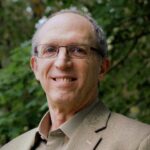 Dan Rothstein is an Adjunct Lecturer on Education at Harvard Graduate School of Education. Dan is the co-director of the Democracy-Building Program at the Right Question Institute (RQI). He was one of the founders of RQI and helped create its model of democratic education — strengthening the ability of people who are traditionally far from power to advocate for themselves, participate in decisions, and take democratic action. He is the co-author with Luz Santana, of Make Just One Change: Teach Students to Ask Their Own Questions (Harvard Education Press: 2011) and has led trainings in the Right Question Institute’s educational strategy to increase agency and empowerment with educators, community leaders, researchers and frontline service providers in the United States and around the world. He has also been working as a co-P.I. on several NSF-funded projects to strengthen higher education and improve researchers’ ability to ask better questions.
Dan Rothstein is an Adjunct Lecturer on Education at Harvard Graduate School of Education. Dan is the co-director of the Democracy-Building Program at the Right Question Institute (RQI). He was one of the founders of RQI and helped create its model of democratic education — strengthening the ability of people who are traditionally far from power to advocate for themselves, participate in decisions, and take democratic action. He is the co-author with Luz Santana, of Make Just One Change: Teach Students to Ask Their Own Questions (Harvard Education Press: 2011) and has led trainings in the Right Question Institute’s educational strategy to increase agency and empowerment with educators, community leaders, researchers and frontline service providers in the United States and around the world. He has also been working as a co-P.I. on several NSF-funded projects to strengthen higher education and improve researchers’ ability to ask better questions.
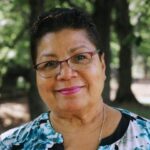 Luz Santana is an Adjunct Lecturer on Education at Harvard Graduate School of Education. Luz is RQI’s co-founder and co-director of democracy-building programs. Luz helped develop the concept of Microdemocracy — the idea that low-income people can begin to participate in their ordinary encounters with public and publicly funded institutions. She is the co-author of Make Just One Change, published by Harvard Education Press in 2011, and Partnering with Parents. Luz has a B.A and M.A. from the Springfield College School of Human Services, and she was chosen as a Community Fellow at M.I.T. Luz is dedicated to finding the simplest ways to make it possible for all people to learn how to think and act more effectively on their own behalf. Her work is informed not only by her personal experience as a former welfare recipient, but also by lessons from people all over the country and beyond with whom RQI has worked for the past twenty years. In the course of her work, Santana has traveled the country as a presenter, facilitator, and keynote speaker — in English and Spanish.
Luz Santana is an Adjunct Lecturer on Education at Harvard Graduate School of Education. Luz is RQI’s co-founder and co-director of democracy-building programs. Luz helped develop the concept of Microdemocracy — the idea that low-income people can begin to participate in their ordinary encounters with public and publicly funded institutions. She is the co-author of Make Just One Change, published by Harvard Education Press in 2011, and Partnering with Parents. Luz has a B.A and M.A. from the Springfield College School of Human Services, and she was chosen as a Community Fellow at M.I.T. Luz is dedicated to finding the simplest ways to make it possible for all people to learn how to think and act more effectively on their own behalf. Her work is informed not only by her personal experience as a former welfare recipient, but also by lessons from people all over the country and beyond with whom RQI has worked for the past twenty years. In the course of her work, Santana has traveled the country as a presenter, facilitator, and keynote speaker — in English and Spanish.
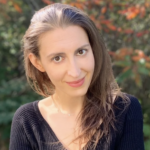 Alexandra Sedlovskaya is Associate Director at the C. Roland Christensen Center for Teaching and Learning at Harvard Business School. Alexandra designs and executes research pertaining to management education and pedagogies that support participant-centered learning. Project areas include case teaching, curricular innovations, program assessment, gender and diversity, student evaluations of teaching, and teaching effectiveness.
Alexandra Sedlovskaya is Associate Director at the C. Roland Christensen Center for Teaching and Learning at Harvard Business School. Alexandra designs and executes research pertaining to management education and pedagogies that support participant-centered learning. Project areas include case teaching, curricular innovations, program assessment, gender and diversity, student evaluations of teaching, and teaching effectiveness.
 Karen Thornber is Harry Tuchman Levin Professor in Literature and Professor of East Asian Languages and Civilizations, as well as Richard L. Menschel Faculty Director of the Derek Bok Center for Teaching and Learning and President of Phi Beta Kappa Alpha Iota of Massachusetts. Professor Thornber is a cultural historian and scholar of Asian literature and media working primarily in the fields of environmental humanities; medical and health humanities; trauma, gender justice, environmental justice, climate justice, and other forms of justice; transculturation (e.g., translation studies, world literature, comparative literature); and global indigeneities. She earned her A.B. from Princeton, with a major in Comparative Literature and three minors (Japanese Language and Literature, East Asian Studies, and Romance Languages and Literatures); and her Ph.D. in East Asian Languages and Civilizations from Harvard in 2006, in Chinese, Japanese, and Korean literatures. Having conducted extensive fieldwork in vernacular archives across East Asia, Professor Thornber works in more than a dozen European, East Asian, and South Asian languages, modern and classical. In addition to publishing actively (6 single-author scholarly books, 80 scholarly articles/chapters, several (co)edited volumes, Japanese literature translation), Professor Thornber has held a range of leadership and service positions at Harvard and well beyond and taught, advised, and mentored graduate and undergraduate students from across the humanities and humanistic social sciences. Her most recent books are Global Healing: Literature, Advocacy, Care (2020) and Gender Justice and Contemporary Asian Literatures (2024).
Karen Thornber is Harry Tuchman Levin Professor in Literature and Professor of East Asian Languages and Civilizations, as well as Richard L. Menschel Faculty Director of the Derek Bok Center for Teaching and Learning and President of Phi Beta Kappa Alpha Iota of Massachusetts. Professor Thornber is a cultural historian and scholar of Asian literature and media working primarily in the fields of environmental humanities; medical and health humanities; trauma, gender justice, environmental justice, climate justice, and other forms of justice; transculturation (e.g., translation studies, world literature, comparative literature); and global indigeneities. She earned her A.B. from Princeton, with a major in Comparative Literature and three minors (Japanese Language and Literature, East Asian Studies, and Romance Languages and Literatures); and her Ph.D. in East Asian Languages and Civilizations from Harvard in 2006, in Chinese, Japanese, and Korean literatures. Having conducted extensive fieldwork in vernacular archives across East Asia, Professor Thornber works in more than a dozen European, East Asian, and South Asian languages, modern and classical. In addition to publishing actively (6 single-author scholarly books, 80 scholarly articles/chapters, several (co)edited volumes, Japanese literature translation), Professor Thornber has held a range of leadership and service positions at Harvard and well beyond and taught, advised, and mentored graduate and undergraduate students from across the humanities and humanistic social sciences. Her most recent books are Global Healing: Literature, Advocacy, Care (2020) and Gender Justice and Contemporary Asian Literatures (2024).
“Small Moves for Big Topics: Transforming hard conversations into learning opportunities”
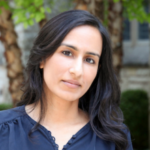
Eram Alam is an Assistant Professor in the Department of the History of Science (FAS). Eram specializes in the history of medicine, with a particular emphasis on globalization, race, migration, and health during the twentieth century. Her first book, The Care of Foreigners, explores the enduring consequences of post-colonial physician migration from Asia to the United States. Eram is also co-editing a volume with Dorothy Roberts entitled Ordering the Human: Global Science and Racial Reason (Columbia University Press, forthcoming). Eram’s next project, The Logistical Body, was motivated by the pandemic and the subsequent breakdowns it made visible. The Logistical Body investigates one limit – the material remainder of the laboring body within this hypermobile regime – and excavates the strategies, techniques, and logics used to manage this disordered entity.
 Robert Haussman is a SEAS LInc Research Associate, working to develop, assess, and implement effective pedagogy in applied mathematics. Prior to his arrival at SEAS, Robert completed his undergraduate degrees in physics and mathematics at the Massachusetts Institute of Technology, and earned his doctorate in theoretical soft matter physics at Carnegie Mellon University. Robert’s background lies at the intersection of statistical field theory and biophysics, but his research interests are broadly interdisciplinary and center on his appreciation of and drive to understand the common mathematical structures that describe and unite seemingly dissimilar systems. Robert’s passion for education is reflected in his decade-long history of teaching and mentorship. He has maintained this commitment through a variety of educational engagements, including one-on-one subject tutoring, large undergraduate course recitations at both MIT and CMU, and residential summer programs for motivated high school students interested in STEM careers.
Robert Haussman is a SEAS LInc Research Associate, working to develop, assess, and implement effective pedagogy in applied mathematics. Prior to his arrival at SEAS, Robert completed his undergraduate degrees in physics and mathematics at the Massachusetts Institute of Technology, and earned his doctorate in theoretical soft matter physics at Carnegie Mellon University. Robert’s background lies at the intersection of statistical field theory and biophysics, but his research interests are broadly interdisciplinary and center on his appreciation of and drive to understand the common mathematical structures that describe and unite seemingly dissimilar systems. Robert’s passion for education is reflected in his decade-long history of teaching and mentorship. He has maintained this commitment through a variety of educational engagements, including one-on-one subject tutoring, large undergraduate course recitations at both MIT and CMU, and residential summer programs for motivated high school students interested in STEM careers.
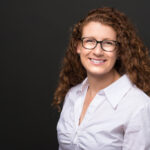 Aimee Hollander is a Lecturer on Microbiology and the Director of the Curriculum Fellows Program at Harvard Medical School. She earned her PhD in Microbiology and Immunology and has held a range of academic leadership positions, including Assistant Professor, Director of Science Education, and Director of a Center for Teaching Excellence. With a deep passion for science education, Dr. Hollander focuses on how students learn biology and currently leads efforts in training postdoctoral fellows in STEM education and responsible conduct of science.
Aimee Hollander is a Lecturer on Microbiology and the Director of the Curriculum Fellows Program at Harvard Medical School. She earned her PhD in Microbiology and Immunology and has held a range of academic leadership positions, including Assistant Professor, Director of Science Education, and Director of a Center for Teaching Excellence. With a deep passion for science education, Dr. Hollander focuses on how students learn biology and currently leads efforts in training postdoctoral fellows in STEM education and responsible conduct of science.
 Karina Lin-Murphy is the Associate Director of Course Design and Pedagogical Innovation at Harvard Business School (HBS). Karina provides faculty support on course development with a focus on pedagogical innovation. Her support areas include teaching across modalities and technologies, as well as course and instructional design. Karina has a Master’s in Education from the Harvard Graduate School of Education in Learning Design, Innovation, and Technology.
Karina Lin-Murphy is the Associate Director of Course Design and Pedagogical Innovation at Harvard Business School (HBS). Karina provides faculty support on course development with a focus on pedagogical innovation. Her support areas include teaching across modalities and technologies, as well as course and instructional design. Karina has a Master’s in Education from the Harvard Graduate School of Education in Learning Design, Innovation, and Technology.
 Matthew Weinzierl is Senior Associate Dean and Chair of the MBA Program at Harvard Business School, where he is the Joseph and Jacqueline Elbling Professor of Business Administration in the Business, Government, and the International Economy Unit, and a Research Associate at the National Bureau of Economic Research. His research focuses on the optimal design of economic policy, in particular taxation, with an emphasis on better understanding the philosophical principles underlying policy choices. Recently, he has launched a set of research projects focused on the commercialization of the space sector and its economic implications.
Matthew Weinzierl is Senior Associate Dean and Chair of the MBA Program at Harvard Business School, where he is the Joseph and Jacqueline Elbling Professor of Business Administration in the Business, Government, and the International Economy Unit, and a Research Associate at the National Bureau of Economic Research. His research focuses on the optimal design of economic policy, in particular taxation, with an emphasis on better understanding the philosophical principles underlying policy choices. Recently, he has launched a set of research projects focused on the commercialization of the space sector and its economic implications.
“Student Perspectives: From Lived Experience to Critical Engagement”
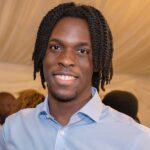 Tega Ajise is a senior at Harvard College concentrating in Computer Science with a secondary in Arts, Film and Visual Studies (AFVS). As a team leader for the Design team with the UPFs, he develops digital resources that can facilitate workshops or provide interactive tools for TFs to engage with the student experience better. His motivation for becoming a UPF lies in the belief that learning can aid self-discovery. Education should provide support for students to understand how they can contribute to the world around them with their knowledge and identity. Otherwise, you can find Tega spending time on basketball, video editing, or photography.
Tega Ajise is a senior at Harvard College concentrating in Computer Science with a secondary in Arts, Film and Visual Studies (AFVS). As a team leader for the Design team with the UPFs, he develops digital resources that can facilitate workshops or provide interactive tools for TFs to engage with the student experience better. His motivation for becoming a UPF lies in the belief that learning can aid self-discovery. Education should provide support for students to understand how they can contribute to the world around them with their knowledge and identity. Otherwise, you can find Tega spending time on basketball, video editing, or photography.
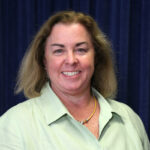 Maria Flanagan is a Senior Associate Director of Digital Learning Design within SLATE (Strengthening Learning and Teaching Excellence) at Harvard Kennedy School of Government. Maria leads digital learning projects and consults with faculty on digital learning experiences in curriculum and professional programs. She also co-chairs HILT’s Affinity Group for Learning Data & Analytics. Maria holds a Master in Education from Harvard Graduate School of Education and a BA in Government/International Relations from Georgetown University.
Maria Flanagan is a Senior Associate Director of Digital Learning Design within SLATE (Strengthening Learning and Teaching Excellence) at Harvard Kennedy School of Government. Maria leads digital learning projects and consults with faculty on digital learning experiences in curriculum and professional programs. She also co-chairs HILT’s Affinity Group for Learning Data & Analytics. Maria holds a Master in Education from Harvard Graduate School of Education and a BA in Government/International Relations from Georgetown University.
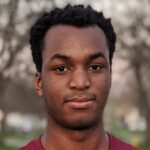 Chukwudi “Chudy” Michael Ilozue is a senior in Adams House studying History and Science on the Medicine and Society Track with a secondary in Economics. Chudy’s family is from Southeastern Nigeria but he was born and raised just outside Buffalo, New York in a diverse community with a wide array of opinions. As a multi-year senior fellow with the Edmond and Lily Safra Center for Ethic’s Intercollegiate Civil Disagreement Program, Chudy has taken a passion toward encouraging and supporting difficult conversations. Outside of the Safra Center’s Fellowship, he has worked toward supporting these conversations in high school students and is working toward a career in health policy.
Chukwudi “Chudy” Michael Ilozue is a senior in Adams House studying History and Science on the Medicine and Society Track with a secondary in Economics. Chudy’s family is from Southeastern Nigeria but he was born and raised just outside Buffalo, New York in a diverse community with a wide array of opinions. As a multi-year senior fellow with the Edmond and Lily Safra Center for Ethic’s Intercollegiate Civil Disagreement Program, Chudy has taken a passion toward encouraging and supporting difficult conversations. Outside of the Safra Center’s Fellowship, he has worked toward supporting these conversations in high school students and is working toward a career in health policy.
 Cassandra Montenegro is a recent graduate of the Master of Divinity (MDiv) program at Harvard Divinity School (HDS). At present, she lives in residence at Harvard College as a Senior Resident Tutor and Edmond and Lily Safra Center for Ethics Fellow at Cabot House, as well as co-leads and walks The Landscape of Slavery at Harvard Tour with the Harvard Chaplains. Before HDS, she practiced law and taught high school in South Florida, where she co-founded and co-organized a yearly TEDx event committed to creating a forum for elevating and discussing student ideas. While at Harvard, Cassandra has held positions as a Graduate Assistant at the Office of BGLTQ Student Life at Harvard College co-creating queer poetry spaces, as a Teaching Assistant at the Harvard T. H. Chan School of Public Health in the DrPH courses on Personal Mastery, and as a Chaplain Intern for the Office of Religious and Spiritual Life at Harvard Divinity School. This past Summer, she served as a Chaplain Intern in the Spirituality and Mental Health Program at McLean Psychiatric Hospital in Belmont, leading trauma informed, evidence-based bibliotherapy and poetry therapy group spaces for spiritual care in community. As the descendant of Cuban exiles, the values of religious freedom, spiritual discipline, and ethical discourse as sacred stems not solely from fracture, but from a transformational devotion in tending to the interconnected roots of resistance, resilience, and relational repair.
Cassandra Montenegro is a recent graduate of the Master of Divinity (MDiv) program at Harvard Divinity School (HDS). At present, she lives in residence at Harvard College as a Senior Resident Tutor and Edmond and Lily Safra Center for Ethics Fellow at Cabot House, as well as co-leads and walks The Landscape of Slavery at Harvard Tour with the Harvard Chaplains. Before HDS, she practiced law and taught high school in South Florida, where she co-founded and co-organized a yearly TEDx event committed to creating a forum for elevating and discussing student ideas. While at Harvard, Cassandra has held positions as a Graduate Assistant at the Office of BGLTQ Student Life at Harvard College co-creating queer poetry spaces, as a Teaching Assistant at the Harvard T. H. Chan School of Public Health in the DrPH courses on Personal Mastery, and as a Chaplain Intern for the Office of Religious and Spiritual Life at Harvard Divinity School. This past Summer, she served as a Chaplain Intern in the Spirituality and Mental Health Program at McLean Psychiatric Hospital in Belmont, leading trauma informed, evidence-based bibliotherapy and poetry therapy group spaces for spiritual care in community. As the descendant of Cuban exiles, the values of religious freedom, spiritual discipline, and ethical discourse as sacred stems not solely from fracture, but from a transformational devotion in tending to the interconnected roots of resistance, resilience, and relational repair.
 Pratyush Rawal is a recent graduate of the Master in Public Administration (MPA) program at Harvard Kennedy School, where he currently works with the Candid and Constructive Conversations (CCC) Initiative. Before HKS, he founded Sadbhavna.in in India, an initiative dedicated to countering hate and polarization through dialogue. At HKS, he co-led the Engaging Across Differences Caucus, organizing events that fostered conversations across divides, especially after the events of October 7th last year. His passion for peacebuilding and dialogue is deeply personal, inspired by his family’s history of migration during the Partition of 1947.
Pratyush Rawal is a recent graduate of the Master in Public Administration (MPA) program at Harvard Kennedy School, where he currently works with the Candid and Constructive Conversations (CCC) Initiative. Before HKS, he founded Sadbhavna.in in India, an initiative dedicated to countering hate and polarization through dialogue. At HKS, he co-led the Engaging Across Differences Caucus, organizing events that fostered conversations across divides, especially after the events of October 7th last year. His passion for peacebuilding and dialogue is deeply personal, inspired by his family’s history of migration during the Partition of 1947.
 Ashlie Sandoval-Lee is the Assistant Director of Equity and Inclusion at The Derek Bok Center for Teaching and Learning. Ashlie oversees the development and delivery of programming regarding equity, inclusion, and belonging in higher education pedagogy for faculty and graduate students. Ashlie leads seminars, workshops, reading groups, and one-on-one consultations. She also provides direction for the Undergraduate Pedagogy Fellows, a cohort of Harvard undergraduates who facilitate workshops on undergraduate student identities and experiences for instructors.
Ashlie Sandoval-Lee is the Assistant Director of Equity and Inclusion at The Derek Bok Center for Teaching and Learning. Ashlie oversees the development and delivery of programming regarding equity, inclusion, and belonging in higher education pedagogy for faculty and graduate students. Ashlie leads seminars, workshops, reading groups, and one-on-one consultations. She also provides direction for the Undergraduate Pedagogy Fellows, a cohort of Harvard undergraduates who facilitate workshops on undergraduate student identities and experiences for instructors.
Afternoon Plenary: “Where Does Harvard Go From Here?”
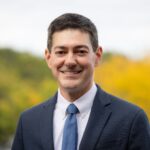
Eric Beerbohm is Professor of Government and Faculty Affiliate in the Department of Philosophy at Harvard University. He serves as Faculty Director of the Edmond & Lily Safra Center for Ethics, Faculty Dean at Quincy House, and Senior Adviser on Civil Discourse in the Faculty of Arts and Science. His philosophical and teaching interests include democratic theory, political ethics, and the philosophy of social science. A Marshall Scholar, Truman Scholar, and Mellon Fellow in the Humanities and Social Sciences, he received his Ph.D. from Princeton University in 2008, B.Phil. in Philosophy from Oxford University, and BA in Political Science and the Program in Ethics in Society from Stanford University. He is a recipient of the Roslyn Abramson Award, Harvard’s highest award for teaching given annually to two faculty in Arts and Sciences for “excellence and sensitivity in undergraduate teaching.”
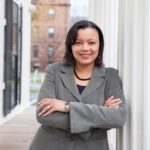 Tomiko Brown-Nagin is dean of Harvard Radcliffe Institute, one of the world’s leading centers for interdisciplinary research across the humanities, sciences, social sciences, arts, and professions. She is also the Daniel P.S. Paul Professor of Constitutional Law at Harvard Law School and a professor of history at Harvard University. An award-winning legal historian and an expert in constitutional law and education law and policy, she is a member of the American Academy of Arts and Sciences, the American Law Institute, and the American Philosophical Society; a fellow of the American Bar Foundation; a distinguished lecturer for the Organization of American Historians; and a member of the board of directors of ProPublica. Brown-Nagin has published articles and book chapters on a wide range of topics, including the Supreme Court’s equal protection jurisprudence, civil rights law and history, the Affordable Care Act, and education reform. She is a contributing editor to POLITICO Magazine as well as a frequent lecturer and media commentator. Brown-Nagin’s latest book, Civil Rights Queen: Constance Baker Motley and the Struggle for Equality (Pantheon, 2022), explores the life and times of the pathbreaking lawyer, politician, and judge. It won the Order of Coif book award, among other honors. Her book Courage to Dissent: Atlanta and the Long History of the Civil Rights Movement (Oxford University Press, 2011) won a 2012 Bancroft Prize in American History, among other honors. In 2019, Brown-Nagin was appointed chair of the Presidential Committee on Harvard and the Legacy of Slavery, which was anchored at the Radcliffe Institute. The Committee issued a landmark report detailing the University’s direct, financial, and intellectual ties to slavery, which resulted in Harvard’s commitment to redress harms to descendant communities in the United States and in the Caribbean.
Tomiko Brown-Nagin is dean of Harvard Radcliffe Institute, one of the world’s leading centers for interdisciplinary research across the humanities, sciences, social sciences, arts, and professions. She is also the Daniel P.S. Paul Professor of Constitutional Law at Harvard Law School and a professor of history at Harvard University. An award-winning legal historian and an expert in constitutional law and education law and policy, she is a member of the American Academy of Arts and Sciences, the American Law Institute, and the American Philosophical Society; a fellow of the American Bar Foundation; a distinguished lecturer for the Organization of American Historians; and a member of the board of directors of ProPublica. Brown-Nagin has published articles and book chapters on a wide range of topics, including the Supreme Court’s equal protection jurisprudence, civil rights law and history, the Affordable Care Act, and education reform. She is a contributing editor to POLITICO Magazine as well as a frequent lecturer and media commentator. Brown-Nagin’s latest book, Civil Rights Queen: Constance Baker Motley and the Struggle for Equality (Pantheon, 2022), explores the life and times of the pathbreaking lawyer, politician, and judge. It won the Order of Coif book award, among other honors. Her book Courage to Dissent: Atlanta and the Long History of the Civil Rights Movement (Oxford University Press, 2011) won a 2012 Bancroft Prize in American History, among other honors. In 2019, Brown-Nagin was appointed chair of the Presidential Committee on Harvard and the Legacy of Slavery, which was anchored at the Radcliffe Institute. The Committee issued a landmark report detailing the University’s direct, financial, and intellectual ties to slavery, which resulted in Harvard’s commitment to redress harms to descendant communities in the United States and in the Caribbean.
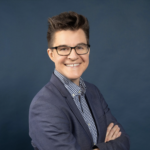 Erica Chenoweth is the Academic Dean for Faculty Development and the Frank Stanton Professor of the First Amendment at Harvard Kennedy School, Faculty Dean at Pforzheimer House at Harvard College, and a Susan S. and Kenneth L. Wallach Professor at Harvard’s Radcliffe Institute. Chenoweth studies political violence and its alternatives. They have authored or edited nine other books and dozens of articles on mass movements, nonviolent resistance, terrorism, political violence, revolutions, and state repression, including Civil Resistance: What Everyone Needs to Know (2021) and On Revolutions (2022). At Harvard, Chenoweth directs the Nonviolent Action Lab, an innovation hub that uses social science tools and evidence to support movement-led political transformation. There they maintain the NAVCO Data Project, one of the world’s leading datasets on historical and contemporary mass mobilizations around the globe; the Women in Resistance (WiRe) Dataset, which catalogues the gender composition of such movements (with Zoe Marks); and the Crowd Counting Consortium, a public interest and scholarly project that documents political mobilization in the US (with Jeremy Pressman). At Harvard, Chenoweth is a Faculty Affiliate at the Ash Center for Democratic Governance and Innovation, Belfer Center for Science and International Affairs, Carr Center for Human Rights Policy, and Women in Public Policy Program. They are also a Faculty Associate at the Weatherhead Center for International Affairs.
Erica Chenoweth is the Academic Dean for Faculty Development and the Frank Stanton Professor of the First Amendment at Harvard Kennedy School, Faculty Dean at Pforzheimer House at Harvard College, and a Susan S. and Kenneth L. Wallach Professor at Harvard’s Radcliffe Institute. Chenoweth studies political violence and its alternatives. They have authored or edited nine other books and dozens of articles on mass movements, nonviolent resistance, terrorism, political violence, revolutions, and state repression, including Civil Resistance: What Everyone Needs to Know (2021) and On Revolutions (2022). At Harvard, Chenoweth directs the Nonviolent Action Lab, an innovation hub that uses social science tools and evidence to support movement-led political transformation. There they maintain the NAVCO Data Project, one of the world’s leading datasets on historical and contemporary mass mobilizations around the globe; the Women in Resistance (WiRe) Dataset, which catalogues the gender composition of such movements (with Zoe Marks); and the Crowd Counting Consortium, a public interest and scholarly project that documents political mobilization in the US (with Jeremy Pressman). At Harvard, Chenoweth is a Faculty Affiliate at the Ash Center for Democratic Governance and Innovation, Belfer Center for Science and International Affairs, Carr Center for Human Rights Policy, and Women in Public Policy Program. They are also a Faculty Associate at the Weatherhead Center for International Affairs.
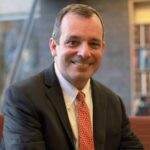
John Manning is Harvard University’s Provost and the Dane Professor of Law at Harvard Law School. Manning was the Morgan and Helen Chu Dean and Professor of Law at Harvard Law School from 2017-2024. He joined the HLS faculty in 2004, and was the Bruce Bromley Professor of Law from 2007–2017 and Deputy Dean from 2013–2017. Prior to coming to Harvard, Manning was the Michael I. Sovern Professor of Law at Columbia Law School, where he began teaching in 1994. Manning teaches administrative law, federal courts, legislation and regulation, separation of powers, and statutory interpretation. His writing focuses on statutory interpretation and structural constitutional law. Manning is a co-editor of Hart & Wechsler’s Federal Courts and the Federal System (6th ed., 2009) (with Richard Fallon, Daniel Meltzer, and David Shapiro), and Legislation and Regulation (2d ed., 2013) (with Matthew Stephenson). Prior to entering teaching, Manning served as an assistant to the Solicitor General in the U.S. Department of Justice (1991-94), an associate in the D.C. office of Gibson, Dunn & Crutcher (1989-91), and an attorney-advisor in the Office of Legal Counsel in the U.S. Department of Justice (1986-88). He served as a law clerk to Hon. Antonin Scalia on the Supreme Court of the United States (1988-89) and to Hon. Robert H. Bork on the U.S. Court of Appeals for the D.C. Circuit (1985-86). Manning graduated from Harvard Law School in 1985 and Harvard College in 1982. He is a member of the American Academy of Arts and Sciences.

